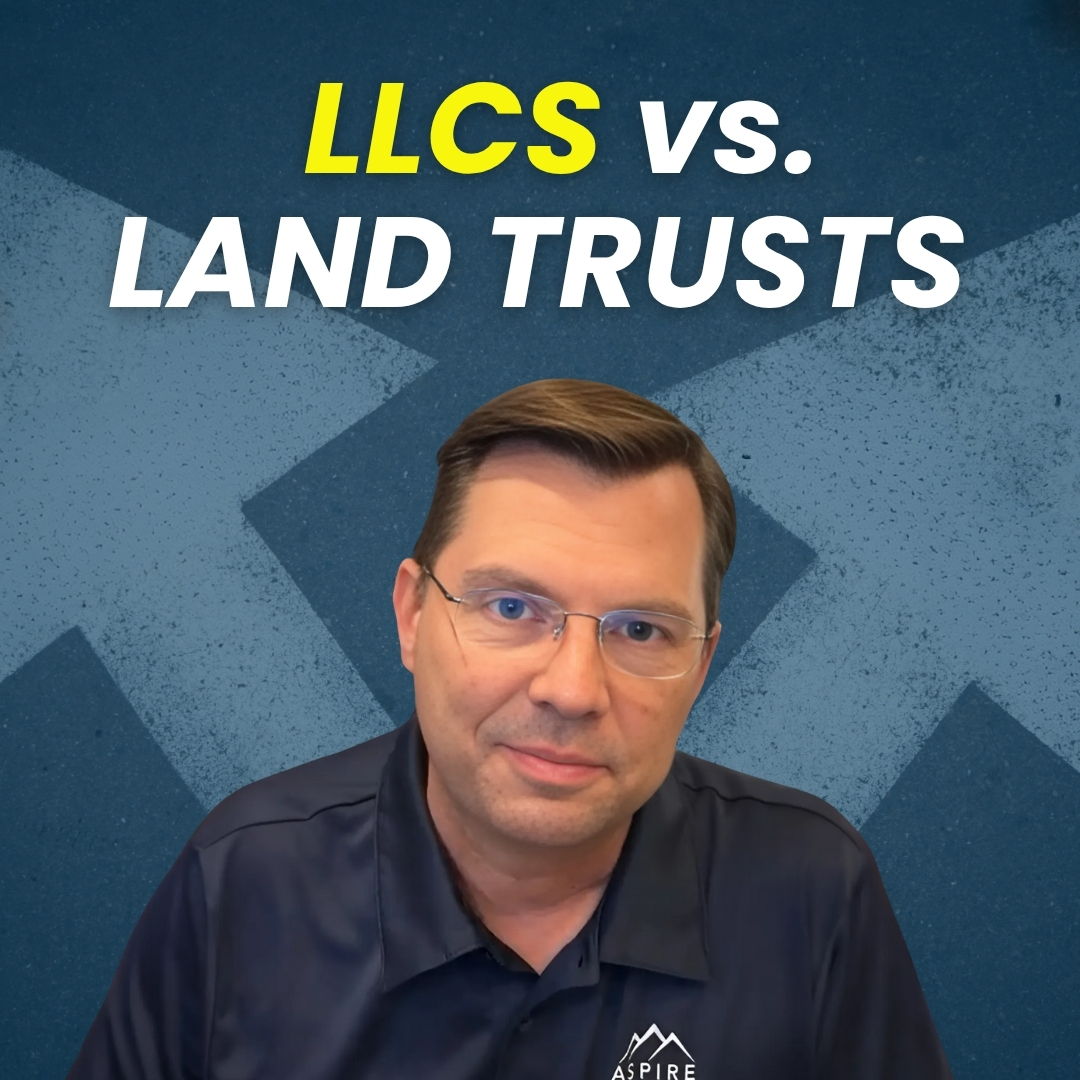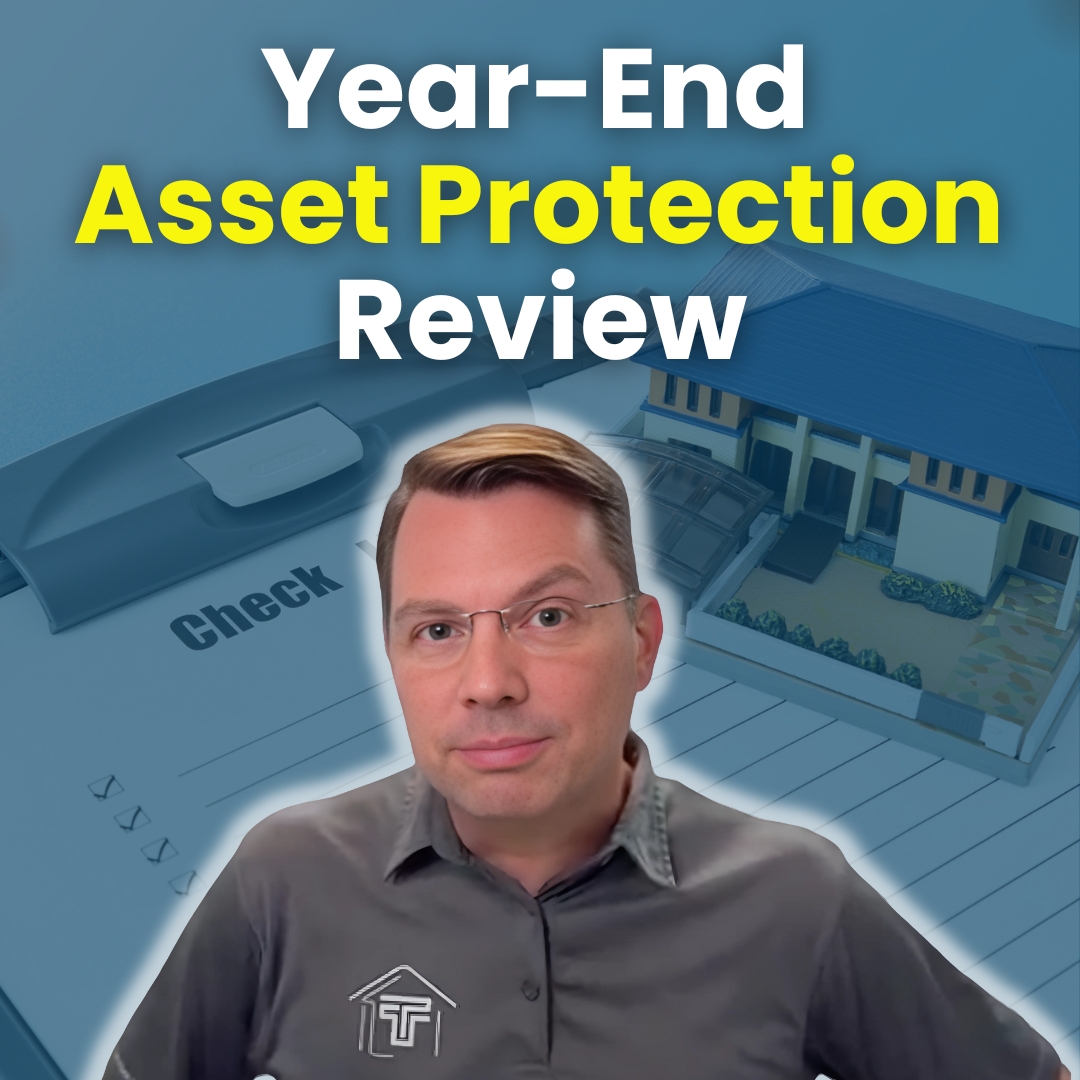Episode Transcript
[00:00:00] Speaker A: Now that the LLC is dissolved, it will instead sue all of the members of the LLC who received money from the LLC. If there was one member of that LLC, then that one member will be the one who is sued. There's two or three. They're all going to be sued and brought into the lawsuit because the LLC has now been dissolved.
I often get calls from clients asking me to dissolve their LLC.
They say, hey, I've just sold the house. I've just closed the business. I've done my last thing, and I want to go ahead and just dissolve the LLC right now.
And I often ask them, why do you want to dissolve the LLC? And they go, well, it's not doing any business anymore. And that's a valid point. That's a very valid point. However, if let's assume that LLC built a house or it was used to buy one property or two or three properties, or maybe even develop a small subdivision, and now the last house has been sold, it's done, and they want to go ahead and sell or close their LLC.
What happens when you close the LLC?
The members become personally liable for anything that that LLC did to the extent that the LLC has distributed money to those members that have now closed it down. So let's say that LLC was opened, it built a house, it sold the house, or it flipped a house, it renovated a house. Whatever it did, the house is now sold. And they go, now let's just close it. Let's just close the LLC. Well, the problem you have with that is now if there is a defect in the construction or another problem that comes up, that buyer will sue. And now that the LLC is dissolved, it will instead sue all of the members of the LLC who received money from the LLC. And if there was one member of that LLC, then that one member will be the one who is sued. There's two or three. They're all going to be sued and brought into the lawsuit because the LLC has now been dissolved. So my advice is if the LLC directly did the business, try to keep that LLC open just active for five years after the last act. Most statutes of limitation are anywhere between one year, five years in most cases. So if you keep the LLC open five years past the last date, that that LLC did something, you're pretty well shielded.
And I've had this happen before where I had a mortgage company at one point, I'll just be totally honest with you, I had a mortgage company, a mortgage brokerage, at one point, a loan went bad that we had done during the mortgage, a company's existence. We had not been doing business in the mortgage company for at least two or three years, but we kept, kept it open based on my advice. And lo and behold, Chase mortgage came along and threatened to sue us if we did not buy back a loan that had gone bad under our contractual agreement that we had with the company. Now, because we had left that LLC open, they could only come after that LLC and we had left, you know, a couple thousand dollars in the bank account during those pending years. So it was very easy for us to settle with the, the bank rather than us having to pay off that entire 200 plus thousand dollar mortgage. We were able to settle for a much, much, much lower amount than we would have if we were, number one, still doing business or if we had just dissolved the LLC, distributed what was left over to the members, myself and my partner, and then we would have been personally on the hook to the lender for buying back that mortgage. So I've learned from experience, I like to keep those llcs open for a while. Now. One way that you can prevent having to do that, especially if you're in real estate.
Let's say you have an LLC and that LLC does a lot of buying and flipping wholesaling homes. And so it's sort of a high risk of being sued and, but then you say, okay, I'm retired, I'm done. I don't want to do this anymore. I don't want to close the LLC. If you have been doing all of the business for that LLC through land trust, so if you've been buying houses and flipping them, renovating them in land trust, each house separately, you're going to be fine. Go ahead and dissolve the LLC. It doesn't matter because the proper defendant in any lawsuit related to a defect at that property, or an undisclosed defect, a hidden defect or anything like that, that may come along down the line, they're going to sue the trustee as trustee of that land trust, and the only asset it ever had was that one piece of property and it's done. So there's, it's really an empty vessel that they'll be suing. And it doesn't matter that the LLC has been dissolved because there's no piercing the veil so long as everything was signed in the name of the land trust while that property was being renovated and sold. So that's one of the big reasons we're a big advocate for having, number one, land trust. Number two, have the trustee sign everything for permit applications, contractor applications and contracts and anything like that that you do just have the trustee sign it. And then once that property sold, it's, it's that basket has now sold off on its own. And they can only come after that. They're not going to come after the LLC underneath. So whenever you decide to shut down that LLC, it's fine. You go online, spend $25 at Sunbiz, dissolve it, and it's over and done. So that's my two cent on when you should dissolve your llcs and when you should not dissolve your llcs and some considerations that you should think about whenever it comes time to dissolve the LLC. A lot of people, this comes up during tax time and their accountant goes, well, has it done any business or anything like that? And they go, well, we have to file a tax return. And you go, well, I don't want to pay that money to have the tax return done for an LLC that hasn't done anything. Number one, it should be a very minimal amount if you even have to file a tax return on the active LLC. But the savings of costs of even having that tax return prepared to show that no money came in or went out that year on that LLC is far outweighed by the potential risk of a lawsuit against that LLC's members after it has dissolved. So I just throw that out there. But everyone's case varies by their facts. So if you're coming up and you're getting ready to dissolve your LLC, contact your lawyer or us, you know, let us know that you're wanting to dissolve it before you do it. And let's have a conversation about that before you, before you go through with it, because it can, that little stroke of a key on your keyboard can really have a major effect on your potential liability for everything that that LLC has done. And you can completely destroy all of the asset protection that has been set up through the LLC very quickly and completely by accident if you're not careful about it and deliberate. So trust this.
[00:07:56] Speaker B: Thanks for listening to this edition of Trust this. If you got something out of it, please press like and subscribe and give us a five star review to help us reach others who can benefit from this series. Until next time, keep aspiring to a better life.


